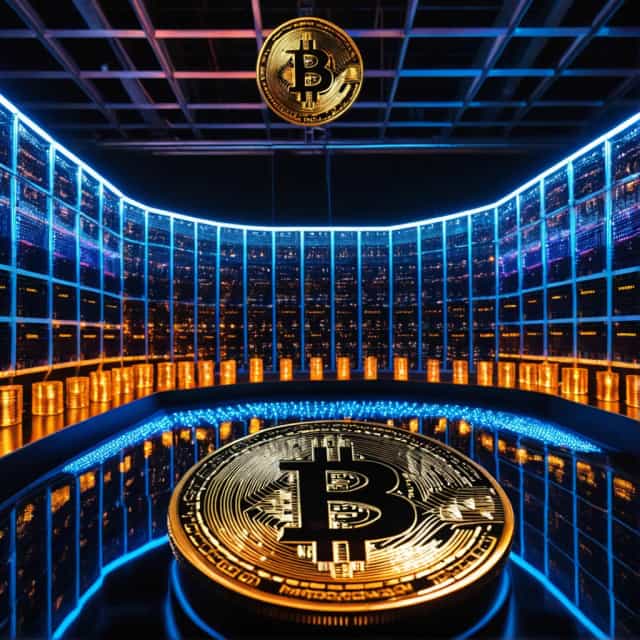![KOSPI Drops to 3420 After Brief Rebound Amid U.S. Shutdown Worries [Market Close]](/_next/image?url=https%3A%2F%2Fwww.blockmedia.co.kr%2Fwp-content%2Fuploads%2F2024%2F11%2F%25EC%25A0%259C%25EB%25AA%25A9%25EC%259D%2584-%25EC%259E%2585%25EB%25A0%25A5%25ED%2595%25B4%25EC%25A3%25BC%25EC%2584%25B8%25EC%259A%2594_-001-8.png%3Fformat%3Dwebp%26width%3D600&w=1200&q=70)
출처: Block Media
Korean Stock Market Falls Amid U.S. Government Shutdown Concerns: Comprehensive Analysis
South Korean Stock Market Closes Lower as Uncertainty Rises
The South Korean stock market experienced a downturn on the 30th, ending its brief recovery from the previous session. This dip was attributed to mounting concerns over a potential U.S. government shutdown, which overshadowed the upward momentum generated by Wall Street earlier in the week. Investor caution permeated the market, reflecting heightened global uncertainties.
According to data from the Korea Exchange, the benchmark KOSPI index closed at 3,424.27, representing a decline of 6.94 points or 0.20% from its prior close of 3,431.21. Although the session began on a positive note at 3,436.00—up 4.79 points or 0.14%—the index wavered throughout trading hours before ending in negative territory.
Jaewon Lee, a researcher at Shinhan Investment Corp., commented on the cautious sentiment, stating, “Retail investors were net buyers, yet their volume was insufficient to drive sustained upward momentum, resulting in limited changes to the broader index. Sector-wise, we observed strength in areas like defense, shipbuilding, automotive, and machinery, whereas semiconductors and financials either faltered or showed stagnation.”
Investor Activity and Sector Highlights
Market performance reflected divergent behaviors among investor categories. Retail investors purchased a net KRW 86.5 billion worth of shares, while foreign investors contributed a modest KRW 5 billion in net buying. On the other hand, institutional investors were net sellers, offloading KRW 134.7 billion during the session.
Lee further remarked, “Foreign investors remained wary in light of U.S. government shutdown risks, leading to range-bound trading. However, these concerns are expected to be short-lived. Despite the immediate uncertainty, corporate earnings forecasts remain robust. Notably, foreign investors maintained their net buying streak of Samsung Electronics, extending it to 13 consecutive trading sessions.”
Among top market-cap stocks on the KOSPI, performance was mixed. Samsung Electronics and SK Hynix, both leading semiconductor firms, experienced declines of 0.36% and 0.43%, respectively. LG Energy Solution also fell, losing 1.14%. Conversely, defense industry giant Hanwha Aerospace surged 4.53%, while HD Hyundai Heavy Industries posted a strong gain of 4.78%.
KOSDAQ Slides as Profit-Taking Intensifies
The tech-focused KOSDAQ index also ended the day in negative territory, closing at 842.51, down 4.20 points or 0.50% from its previous session’s close of 846.71. The index initially opened slightly higher at 847.52, representing a gain of 0.81 points or 0.10%, but profit-taking pressure pushed it downward for the remainder of the day.
Investor activity on the KOSDAQ reflected mixed patterns. Retail and institutional investors were net buyers, adding KRW 235.7 billion and KRW 15.9 billion worth of shares, respectively. However, foreign investors were net sellers, shedding KRW 205.5 billion in stock, further magnifying the index's decline.
Large-cap stocks within the KOSDAQ displayed varying results. PharmaResearch and Peptron emerged as notable gainers, rising by 3.62% and 3.63%, respectively. In contrast, EcoPro BM, a leader in battery materials, dropped by 2.08%, while Samchundang Pharm fell by 2.05%. Robotics company Rainbow Robotics also lost ground, recording a 1.40% decline.
Korean Won Weakens Amid Heightened U.S. Concerns
In the currency market, the South Korean won weakened against the U.S. dollar, reflecting amplified investor caution. The won-dollar exchange rate closed at KRW 1,402.9, marking an increase of 4.2 won from the prior session’s settlement at KRW 1,398.7.
Analysts are closely observing developments surrounding a potential U.S. government shutdown. This looming uncertainty is expected to have significant ripple effects on global investor sentiment, particularly within the foreign exchange and equity markets. The volatility underscores the interconnectedness of global financial systems and how external geopolitical factors can directly impact South Korea's economic landscape.
Conclusion: A Fragile Market Denting Optimism
South Korea’s financial markets concluded the session under a cloud of geopolitical uncertainty, driven by fears of a U.S. government shutdown. Both the KOSPI and KOSDAQ indices faced selling pressure, with varied performances across individual sectors and stocks. Despite short-term concerns, long-term corporate earnings projections remain intact, offering some hope for market stability.
Investors and analysts alike will continue to monitor U.S. political developments and their influence on market trends, particularly in the context of foreign capital flows and currency fluctuations. As global headwinds persist, resilience across key industries such as defense, shipbuilding, and automotive may provide some support to South Korea’s economy in navigating these challenging times.










